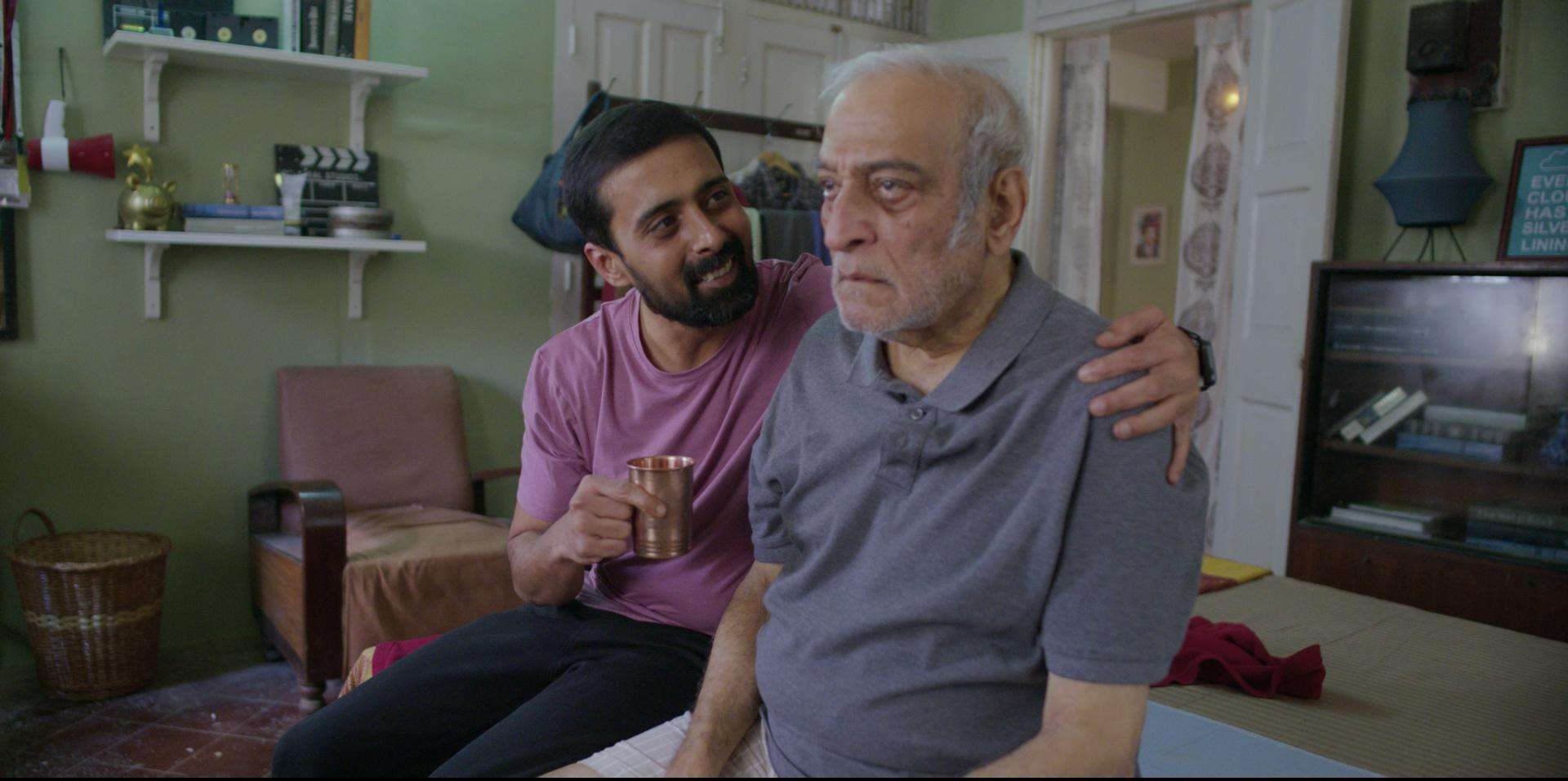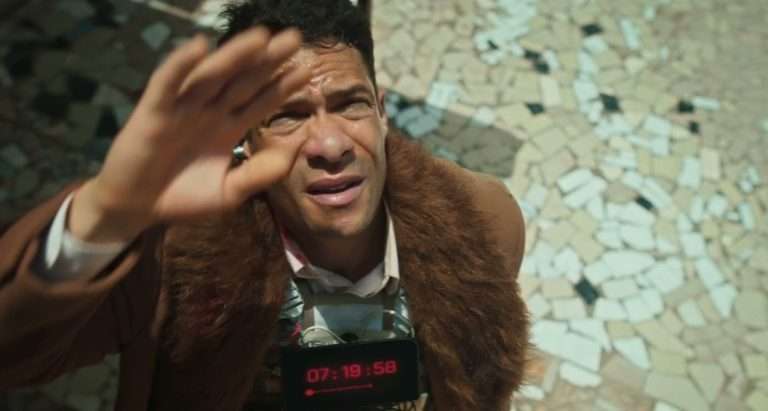Prateek Srivastava’s “My Father is Afraid of Water,” tells the story of a father who is deep in the clutches of Alzheimer’s and his younger son who is taking care of him. The film shows a single day in the life of this father and son. We see Prateek, played by Rahul Bagga, making breakfast in the morning when his elder brother calls to inform him that he must stay at the hospital as their mother needs more assistance after her surgery. Thus, Prateek decides to stay home and take care of their ailing father.
A lot of us have experienced whatever then plays on the screen. Prateek goes to wake his father up, but he refuses to get up. It seems that he cannot recognize him either. Then comes the battle to make him take his medications as he repeatedly spits them out. People who have had the misfortune of witnessing the slow but steady departure of a loved one into the grips of Alzheimer’s would know how real the struggle is. The father, played by veteran actor Mohan Agashe, resists at every step of his son trying to get him ready for the day. Once in the bathroom, after brushing his teeth, he refuses to wash his face as he’s scared of water. From that point on, the film’s name becomes even more meaningful.
Prateek’s father, out of his fear of the water, does not use the bathroom and creates a mess inside the house. Like a dutiful son, Prateek ignores his work calls and starts cleaning up. But, when his father tries to get out of the house despite repeated warnings from Prateek, he loses it. He cries and holds his father down with force. However, despite his failing health, Prateek’s father does not run short on determination. He does go out, making Prateek run after him. He walks on the street and picks up a kid, thinking him to be his younger son. After much trouble and coaxing, Prateek finally brings him back home.
Once home, Prateek tries to give his father a bath, which he violently refuses because of obvious reasons. However, Prateek is not the one to give up, and with continuous attempts and at the cost of getting himself wet, he successfully bathes his father. Decking him up in fresh clothes, Prateek video calls his mother and brother at the hospital to talk to their father. He, of course, does not recognize them or Prateek but seems to be at peace with the surroundings.

“My Father is Afraid of Water” will tug at your heartstrings regardless of your experience with Alzheimer’s. If you have witnessed it happening in front of you, by the end of the film, it will be tough not to let out a long sigh and some tears. The presentation of the father-son dynamic is so real and raw that, for a moment, it feels not like a film but rather like real life. The son’s patience, his breakdowns, the sacrifices he has to make, and eventual happiness for successfully taking care of his father have all been very beautifully portrayed by Rahul Bagga. Mohan Agashe, as the stubborn father slowly losing control over everything, is on point and is bound to remind one of their own father or grandfather in case they have witnessed this in real life.
What works in “My Father is Afraid of Water” is its straightforward and honest storytelling. This is a narrative-centric film, and there is really no deeper meaning to decipher here. However, despite being a very straightforward story, it does not allow the audience to take their eyes off the screen. Like the son, we also feel anxious when the father tries to go out. When he is roaming outside, crossing the roads on his own, we worry, thinking, what if he gets hit? When he refuses to take a bath, we feel for the son but also understand what the father must be going through.
The director has done an excellent job for a film that entirely depends on its story to reach the audience. In the span of 28 minutes, we get transported into a different world; in that world, some might see their own experience, and some might wonder what their future holds and shudder a little. Regardless of one’s experience with Alzheimer’s, the film makes you feel emotions that essentially make us humane. It makes you want to hug older people in your house and say nothing for a while. And as a slice-of-life film, I think that is where its success lies.

![Baseball Girl [2020]: ‘NYAFF’ Review – A moving central performance elevates sports drama](https://79468c92.delivery.rocketcdn.me/wp-content/uploads/2020/09/Baseball-Girl-Movie-Review-highonfilms-1-768x322.jpeg)

![The Tribe [2015] : Love & hatred don’t need translation](https://79468c92.delivery.rocketcdn.me/wp-content/uploads/2016/01/the-tribe-mondo-film-poster-images.jpg)


